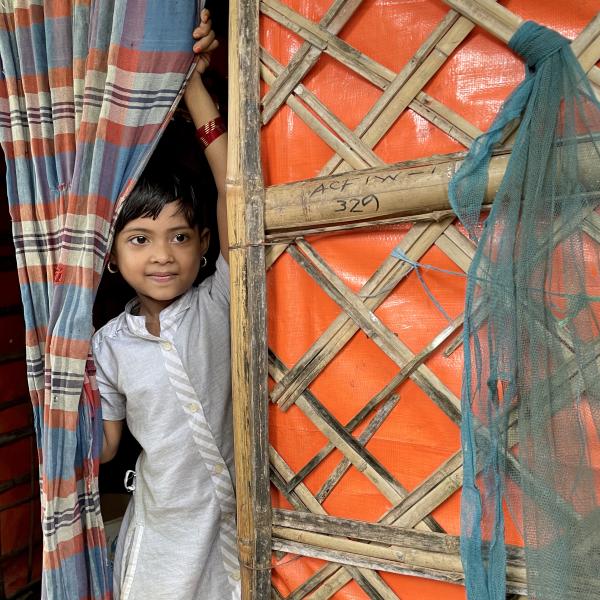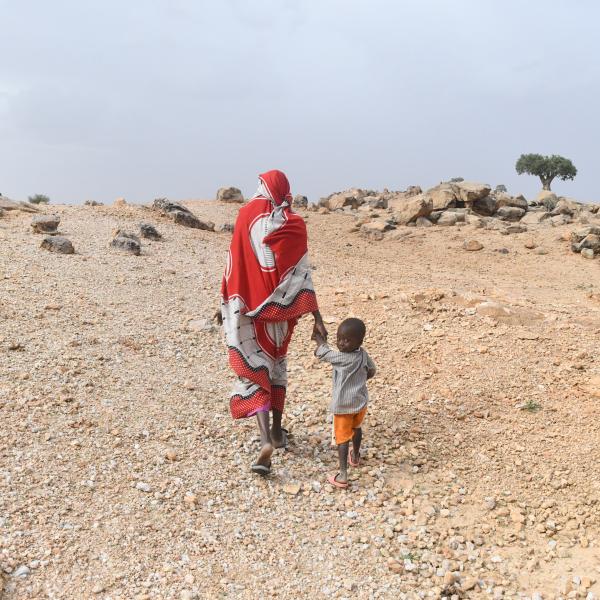In 2022, the number of displaced people has drastically increased, mostly due to the conflict in Ukraine. Fortunately, people from Ukraine have received an unprecedented amount of support and have been welcomed warmly around Europe. However, not all people forced to flee receive the same support and solidarity, although they should all benefit from equal access to safety and protection, the possibility to work to study and to travel.
The 2022 underfunded report looks at 12 countries that are part of UNHCR’s most important operations and where difficult prioritization decisions have already been taken. While in some countries displaced communities are on the verge of facing a disruption in food supply, in others, additional funding would help reduce their reliance on UNHCR in the future.
Throughout a series of three articles, we will have a closer look at the countries UNHCR is most concerned about, given their severe underfunding, starting with the situations in Bangladesh, Chad, Colombia and The Democratic Republic of the Congo. These countries may be underfunded, they will however, not be unremembered.

2022 marks the fifth year since more than 700,000 Rohingya people fled Myanmar for Bangladesh, joining hundreds of thousands that are already there. The 936,700 Rohingya refugees live in Cox bazar, which is one of the country’s poorest districts and home to the largest refugee camp in the world. High levels of inflation, depreciating local currency and price hikes for basic goods and commodities have been recorded, heightening existing vulnerabilities among those already at risk. Until Rohingya refugees can return safely to Myanmar, funding is still needed for education, skills development and livelihoods opportunities. This would render refugees more resilient, contribute to a safer camp environment, and enable them to maintain dignity and purpose in their lives. Of the CHF 280 million needed to respond to the crisis, only 42% are available to this day.
Health, Sustainable housing and basic needs, Clean water, sanitation and hygiene.

One of the poorest countries in the world, Chad is home to more than 1 million forcibly displaced people and is heavily impacted by humanitarian, political and socioeconomic crises. The conflict in Ukraine contributed to economic fluctuations and sharp rising in fuel costs, worsening the already dreadful conditions in the landlocked country. Populations have been pushed to the brink as an estimated 1.3 million children are at risk of severe malnutrition and 2.1 million people could experience severe food insecurity. Chad hosts around 568,919 refugees and around 381,289 Chadians are internally displaced mainly in the Lake Chad Province. The large scale and long-term nature of displacement has strained services, natural resources and social cohesion. Of the CHF 157 million needed to respond to the crisis, only 36% are available to this day.
Clean water, sanitation and hygiene, Education, Well-being and basic needs such as cash, core relief items and food assistance.
Colombia is the country most impacted by the Venezuela situation, hosting more than 2.4 million Venezuelans who have sought refuge outside their country. Venezuelan refugees and migrants can barely cover their basic needs due to the highest inflation in 20 years. Funding would help with cash assistance and ensure food security, support livelihoods, health care and other vital services. Of the CHF 120 million needed to respond to the crisis, only 41% are available to this day.
Well-being and basic needs, Status determination, Access to territory registration and documentation.
The DRC hosts 520,000 refugees and asylum seekers and has 5.6 million IDPs, which makes it one of the most complex humanitarian crises of the world. Around 76% of the population live in poverty and 27 million people are suffering from food insecurity. On top of that in April 2022 a new surge of violence began and more than 200,000 people were forced to flee their homes. Given this long-running crisis, the humanitarian response is severely underfunded. Additional funding would help refugees inside the country as well as Congolese refugees outside the country to return to their place of origin. Of the CHF 221 million needed to respond to the crisis, only 33% are available to this day.
Community empowerment and women’s engagement, Self- reliance, Sustainable housing and settlements.